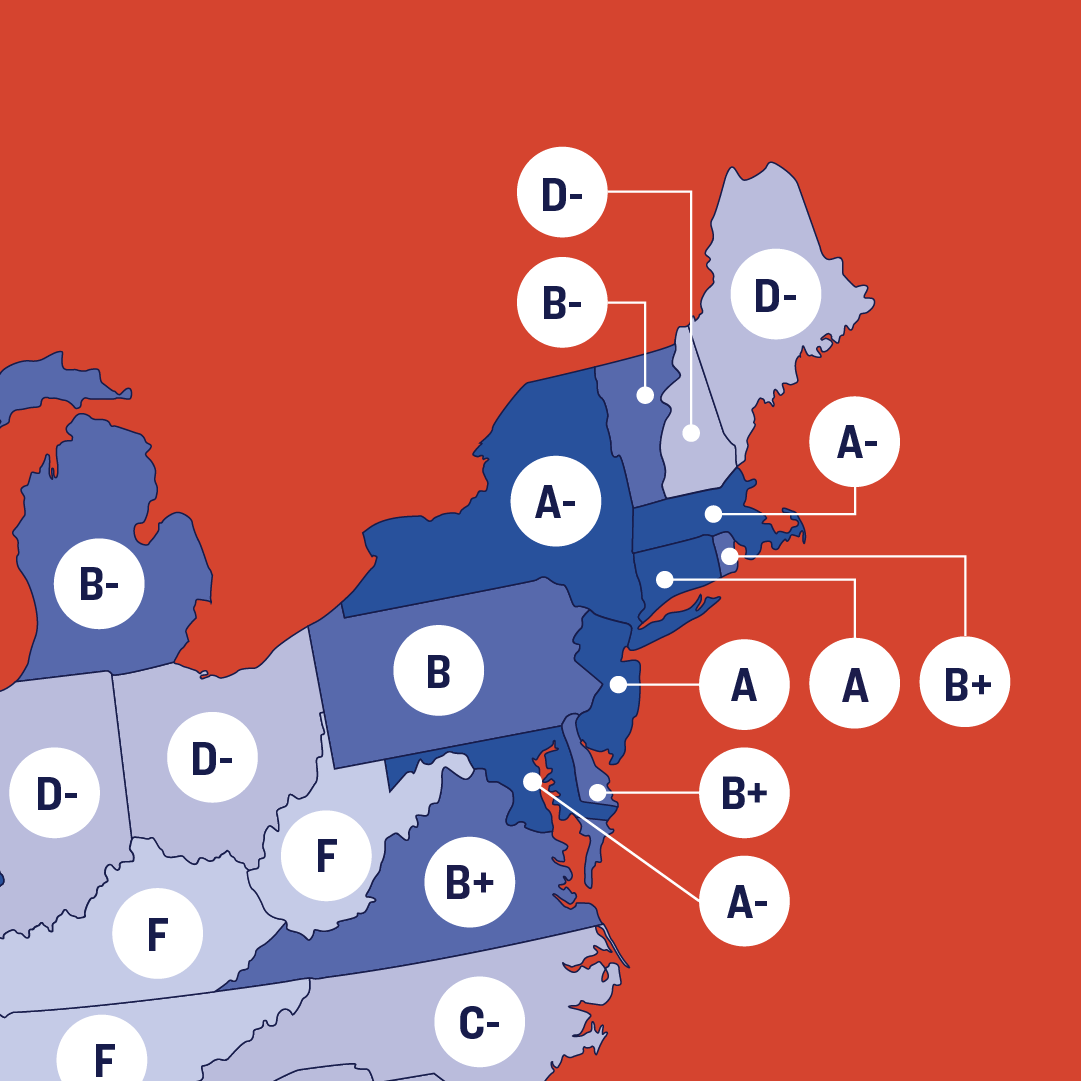
After the 2012 shooting at Sandy Hook Elementary, Connecticut enacted a host of gun safety laws and now has some of the strongest laws in the country.
In 2021, Connecticut had the sixth lowest rate gun death rate among the states. With its strong gun laws, Connecticut exports crime guns to other states at a very low rate. As of 2021, Connecticut had the eleventh lowest rate of crime gun exports.
What Connecticut Does Well
- Universal background checks
- Gun owner licensing
- Extreme risk protection orders
- Certain domestic violence gun laws
- Assault weapon restrictions
- Large capacity magazine ban
- Strong concealed carry law
- Certain open carry regulations
- Child access prevention laws
- Community violence intervention funding
- Lost & stolen firearm reporting
- State database background checks
- Partial ghost gun ban
- Safe storage requirements
- Bulk firearm purchase restrictions
What Connecticut Is Missing
- Handgun design safety standards
- Microstamping requirements

SPOTLIGHT
GUN LAW SCORECARD
The data is clear: states with stronger gun laws have less gun violence. See how your state compares in our annual ranking.
Read MoreEXPLORE CONNECTICUT’S GUN LAWS
WHO CAN HAVE A GUN
OWNER RESPONSIBILITIES
CHILD & CONSUMER SAFETY
GUNS IN PUBLIC
HARDWARE & AMMUNITION
SUPPORT GUN SAFETY
We’re in this together. To build a safer America—one where children and parents in every neighborhood can learn, play, work, and worship without fear of gun violence—we need you standing beside us in this fight.
